Case 4
- Introduction
- Causes of Defects
- Good Practices
- Standards
- Maintenance and Diagnostics
- Remedial
- Similar Cases
- References
Cause of Defects
The following factors can be attributed to the extent of staining:
- The pollution content of the air where the building is resided (Table 1);
- The flow pattern of rainwater over building façade;
- The quality of the materials used and workmanship on the façade; and
- The facade’s design features.
Environmental factors are beyond the control of the designers. However, the degree of staining can be mitigated by controlling the pollution and understanding weather conditions.
Mechanism:
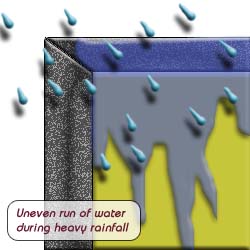
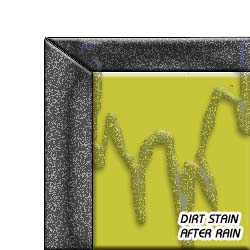
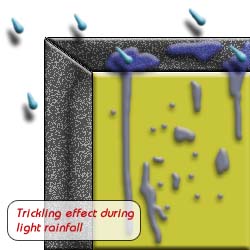
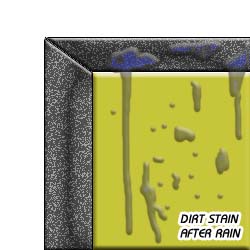
In this case, rainwater that strikes the face of the building picks up the dirt particles and flows over the sloping roof. From this points, the runoff is allowed to flow uncontrollably and unevenly over the ledge onto the external facade wall. During light rainfalls when the runoff is slow and small in volume to throw itself off the roof, it will trickle along the face and deposit dirt particles that it is unable to bring along. Stain streaks thus form in the manner shown with darker streaks along the vertical joints.
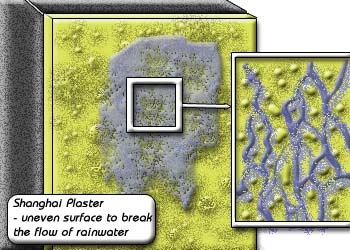
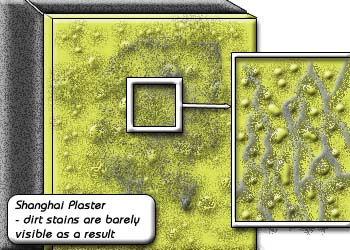
The stains were reduced as the rough texture of the Shanghai plaster break up the flow of rainwater thus the stains were less prominent than on smooth plaster surface.
| Pollutants | Examples | Sizes | Sources | Possible effects |
| Aerosols | Sulphur dioxide (SO2) | Gaseous | Burning of fuels | Formation of acid rain. Reaction with water and other materials to form sulphates and chlorides to cause destruction to façade materials. |
| Soot or black smoke | Smoke from tobacco, coal, fuel oil, metallurgical industry | <1 pm | Imperfect combustion | Transported by air and deposited on facades to cause stains |
| Coarse particulate matter | Ash, dust, rock debris, mineral dust. | >1 pm | Unburnt fuel and dust from roads and industries | Transported by air for short distances and deposited more easily on horizontal or sloping surfaces to form stains. |
Table 1: Pollutants
Staining on a facade has a lot to do with the pattern of rainwater runoff, which in turn is dependent on the facade configuration, colour, texture, as well as the “roughness” and “water absorption” properties of the materials used:

